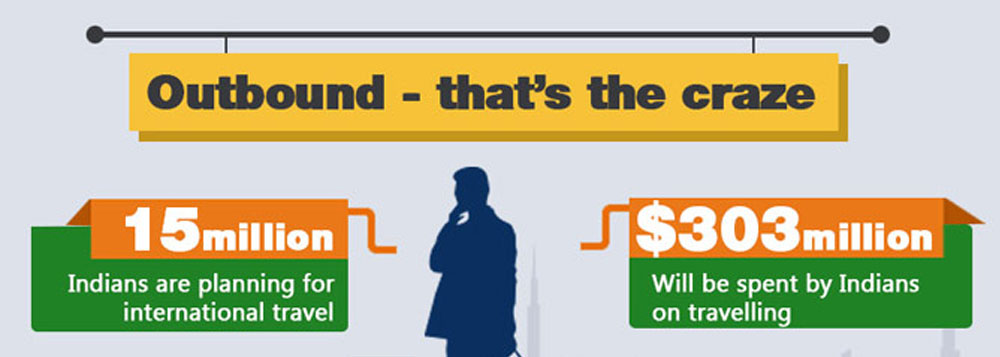eRevMax launches RateTiger & Connect Analytics for hotels
WTM LATIN AMERICA 2014
Top Hospitality Industry Trends for 2014
The Indian Traveller 2014
The third largest economy in the world India is becoming on the major player in travel space. Despite a slower economy and foreign exchange volatility, over 15 million Indian travellers are planning foreign trip shows an infographic, recently released by eRevMax. The Middle East and Far East have certainly been leaders so far but interestingly, India is catching up. The infographic reports that 33 percent of travel-related searches within India are now made online, with mobile being the preferred choice. The solutions provider suggests regional online travel agents should focus on connecting the hotesl of Middle East and APAC region to gain more revenue.
To access the full infographic, click Infographic: The Indian Traveller 2014
Newshound: Trends and Reports – Hotel Online Distribution
Automation is on the up and could hold the key to increasing online sales
In today’s multi-channel environment, hoteliers need to have quick access to hotel-rate data and inventory positions on various sales channels. “Over the last couple of years we have seen an increased focus on integrated applications, allowing hotels to do most of these complex tasks through a single system,” says Michael McCartan, chief executive officer, eRevMax International.
Analyzing the OTAs
Whether you’re in the camp that believes online travel agencies are single-handedly ruining the hotel industry or in the camp that looks to them for a majority of your demand, there’s one thing almost all hoteliers agree on: Third-party room distributors are here to stay. However, while OTAs serve an important role in the industry, it’s no secret their relationship with hoteliers is not perfect, said Brian Mullan, a research analyst with Janney Capital Markets in New York.
The end of the rate-matching machine: ways to count on competitive pricing
Competitive pricing is an element of pricing decisions in any market. How this is done depends on the availability of such data to providers, the visibility and comparability of it to customers and the level of fragmentation in the market. In hospitality and travel, thanks largely to broad Internet distribution, all of these factors make competitive pricing particularly important.
TripAdvisor tests hotel metasearch service – now the fun really begins
User review giant TripAdvisor is finally doing what pretty much everyone involved in the hotel sector expected it to do years ago – consumer metasearch for its vast portfolio of properties.The company confirmed this week that it is currently testing “new search functionality” for hotels, covering both desktop and mobile versions of the service.
The total cost of travel technology [INFOGRAPHIC]
From individuals who have implemented a small system to those coordinating major overhauls of existing platforms in large companies, organising travel technology is not an easy process. It is clearly a combination of establishing the business and technology requirements, alongside budget, expectations, crystal ball-gazing and market analysis.
Report: PwC European Cities Hotel Forecast 2013
Overall, RevPAR growth is expected to slow in 2013, held back by strong economic headwinds across the eurozone. But there will be thrivers; cities expected to show robust RevPAR growth include Paris, St Petersburg and Edinburgh and more modest increases should be seen in Frankfurt, Berlin, Dublin and Moscow.The second edition of PwC’s European cities hotel forecast for 2013 features 19 of Europe’s most important gateway cities.







